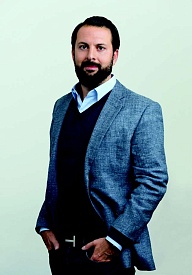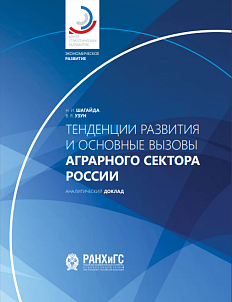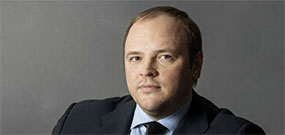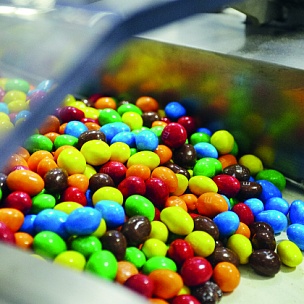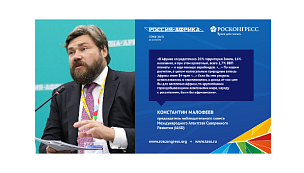
There is a lot of talk about innovation in production right now. The Cherkizovo Group was the only company from Russia and CIS countries to win the prestigious SAP Innovation Awards 2019 for a robotic sausage factory project in Kashira. Is fully automated production the future of the meat industry? Or will similar projects remain one-ofa-kind?
We arent expecting the wide-scale launch of similar projects in the industry. But each plant of this kind is capable of fundamentally changing the balance of power in the market. And we are very proud that we were the only company in Russia and the CIS to receive the SAP award. The robotic plant outside Kashira is truly a unique enterprise. The group has invested about RUB 7 billion in the project. According to our calculations, it will pay off in 7 years. In terms of labour productivity, the plant outside Kashira exceeds normal production capacity by about four times. Its also crucial that the new plant surpasses traditional production in terms of biosafety indicators: introducing the principles of Industry 4.0 fundamentally reduces the influence of the human factor. This year Cherkizovo plans to begin implementing the second phase of the project. Kashira-2 will specialize in the production of boiled
usage.
How is biosafety monitored at Cherkizovo enterprises?
All our hog-raising enterprises have the fourth and highest compartment [of epizootic safety standards]. This means that everything possible has been done to protect the sites the most modern techniques, equipment, medicines, and biological drugs are used. There is no compartmentalization in the poultry industry for now. The Ministry of Agriculture and the Federal Service for Veterinary and Phytosanitary Surveillance are developing standards in this area. But we have already carried out work to prepare for obtaining the fourth compartment for our poultry farms. However, the risks associated with African swine fever and avian flu remain critically high. We believe that the country needs to develop national programmes to combat especially dangerous diseases, and the federal agencies, the Ministry of Agriculture, and the Federal Service for Veterinary and Phytosanitary Surveillance could serve as curators.
Why did you need the national programmes?
First of all, we need to switch to other types of activities [private subsidiary farms] that raise hogs and poultry and are located near major enterprises. Without this, any protective measures at the level of individual companies may not be sufficient.
Whereas in the past the Cherkizovo Group primarily invested in the development of production, now processing has become a priority. Are you planning on rolling out new product categories?
The meat market, like any other, goes through the stages of the life cycle: growth, maturity, and decline. According to certain signs a slowdown in consumption growth rates and a downward trend in real retail prices we are at the point of a transition from growth to maturity. During the new stage, the market is waiting for growth in competition and the commercialization of products that were previously considered niche (for example, chicken cuts). Cherkizovos answer is to focus on marginal products (including marinated meat and ready-made products for reheating and consumption) as well as the development of new alternative channels, primarily HoReCa and HRI [hotels, restaurants, institutions]. Cherkizovo is already a leading supplier to all the largest fast-food chains and plans to become one of the largest suppliers to government structures.
Healthy living is becoming more and more popular today. Do you take this trend into account?
Of course. Taking care of your health trend for the an development of our society, which we fully support. We want to be involved in creating a proper understanding of what it means to lead a healthy lifestyle and how to eat in order to be a healthy and efficient member of society. Cherkizovo is the largest producer of broiler meat, which is traditionally considered a healthy product.
In addition, we are actively developing such segments as turkey production, and by the end of 2019 we plan to rank second in Russia in terms of [turkey production] volume. As part of Pava-pava brand, we offer Russians a unique kind of turkey that is smaller and has a lower fat content. Consumption of this wholesome meat is gradually increasing about 2 kg of turkey is consumed per capita per year today, but it has prospects to grow to 46 kg.
We shouldnt forget about pork, either. Even though at first glance, healthy living and pork dont really go hand in hand, from our point of view, work needs to be done to rehabilitate this type of meat. More and more studies show that animal fats are essential for the body to function normally. After frying bacon, dont drain the fat it is more stable than most vegetable fats and more suitable for frying than, say, sunflower oil. Finally, pork is an excellent source of vitamin B, zinc, phosphorus, magnesium, potassium, and other valuable microelements.

Your company was one of the first to support the introduction in Russia of targeted food assistance to the needy such as the SNAP programme used in America. Have you assessed this well-intended initiative from an economic point of view?
Today in Russia roughly 19 million people (13% of the population) have incomes below the minimum subsistence level. So the Russian equivalent of SNAP will require serious public spending of around RUB 100 billion. But, as we can see from the U.S. example, this will lead to GDP growth and the creation of new jobs. In addition, the programme would help enhance the competitiveness of food exporters through increased production (economies of scale) and curb the stratification of society in terms of the level of per capita income.
The Ministry of Industry and Trade has been promoting the idea of issuing food stamps since 2016. What do you think is preventing this project from being implemented?
One could assume that the implementation of the project in Russia is being hampered by a somewhat one-sided understanding of the programmes objectives. The beneficiaries are not only the poor and food producers, but society as a whole. The priority objectives of the food aid programme are to stimulate economic growth and strengthen national security.
In terms of production growth, what are the priority development regions for you?
The Cherkizovo Groups products are sold throughout the country. In terms of individual regions, one of the priority goals is to develop distribution in the north-western part of the country, primarily in St. Petersburg and the Leningrad Region. We also plan to develop distribution in Western Siberia, and the acquisition of the major poultry farm Altai Broiler in this region in 2018 greatly facilitates this objective.

The Cherkizovo Group strategy is based on high biosafety standards and a focus on marginal products



